(Ode to August, parts one and two.)
Happy hearts and happy faces,
Happy play in grassy places--
That was how in ancient ages,
Children grew to kings and sages
-Robert Louis Stevenson
As August closes, the preparation time for the school year ends, and the real work begins. What is the goal we have in mind for our children? My kids are all college-bound; I would like them to study the Great Books and the Western canon, just like my husband and I did. Does this mean we are currently knee-deep into Euclid, Latin, and The Iliad with them? No, actually.
Our kids are knee-deep in manure and farm chores.
My husband and I believe that a certain type of childhood devoted to physical labor and the development of useful skills is the best companion to classical education. On a basic level, you cannot make proper use of leisure, and you cannot understand or be thankful for the life of the mind if you have no concept of that which is the opposite of leisure. Childhood is the best time to learn how to work. Our goal for our children is to teach them to work “quickly, cheerfully, and well” as my husband always says. Childhood is the best time of life to acquire physical excellence, which as far as I can tell is some combination of work, athletics, animal husbandry, gardening, and cooking.
As stated previously, I have kept my kids out of the local public schools that I attended as a child. I resent the amount of hours that modern education proposes to take from my children; I resented it in the 90s when I was a kid. I need all those hours to teach them how to run our ranch. We have cattle, sheep, pigs, chickens, and acres of gardens. My husband builds and remodels custom homes. Most of our friends have five or more acres and farms of their own, with animals, vegetables and fruit, and many of them work in the trades. Opting out of mainstream education has enabled us to fully opt in to to our home culture and our local community.
Home culture is an essential component of alternative education. It is more important than curriculum, philosophy of education, or parenting style. Home culture is what shapes your kids and gives them their daily habits. Pulling your kids out of all-day school means you’ve got to have something in mind all day every day to keep them occupied, engaged, and useful. In future essays I will write about the importance of community and friendship as necessary compliments to a strong home culture; one family certainly cannot provide everything that children need to become healthy adults. But home culture comes first and is foundational, both to the larger community, and to the proper education of children.
There are myriad ways to fashion a home culture; I don’t think farming or even rural living is essential to a happy childhood. But for us, raising our kids on a large piece of property was our priority. It was that for the sake of which we sacrificed everything else. Land was essential to acclimate our children to physical labor in a real, authentic way, and to teach them a broad range of skills that would help sustain them, physically, economically, and mentally.
It’s very difficult to give your kids anything like the education and childhood most Americans took for granted up until the middle of the last century. Many of the young boys we sent to save the free world during WWII were farm kids; they had both attended school and worked outside with animals. Many of the city kids were skilled in the trades before they were old enough to attend college. That American childhood was muscular, grounded. Useful. It is simply not on offer for American kids in 2024. There are of course enrichment classes and extracurriculars, but not the doing. Classes are not doing. You can’t possibly learn as much reading about working on a farm or in a trade as you do actually working there. Book learning places kids on the adults’ home turf. But manual labor and the skilled trades favor teenagers and young men in particular. It is a different experience to spend late childhood doing things that your body is very suited to doing. Physical excellence is proper to youth, just as wisdom and politics is proper to old age.
My husband and I both grew up working on ranches. It seemed to us that our agrarian childhoods made most of adult life easier. Everything seems easier compared to the impossibly sweaty and disagreeable tasks we were accustomed to doing in middle childhood. When I was nine years old, I could load up, back up, and drive an old tractor and trailer full of vegetables across fields and into the washing and storage area of the large ranch I worked on. I could hoe and pick fruits and vegetables for five or six hours straight in the hot summer sun. That kind of work was normal; I liked it.
To this day, when I smell blackberry bushes and remember the hours I spent picking flats of them in July and August every summer to sell at the farmer’s markets, I am filled with a happy, peaceful feeling. The work was far from peaceful—it was thorny and painful and hot and uncomfortable. I both hated the work and loved that life. It was so freeing to spend hours outside thinking and talking to my siblings, or to the old rancher who taught us how to work.
We would take breaks midmorning to do crossword puzzles and drink Country Time lemonade. When I was supposed to be washing and packing vegetables in the Gold Rush-era barn, I would take the powerful spray hose and shoot down all the wasp nests from the rafters and the old rancher would come in and yell at me, laughing. The ranch had a real, actual well with a bucket on a rope. That land had been worked consistently since the 1850s. After work we would swim in the rancher’s big pool and eat tomatoes and cucumber sandwiches, and drink endless cold pitchers of unsweetened iced tea until our mom came and picked us up. It was the best food I’ve ever had, and the best living I’ve ever done. And it was excruciatingly uncomfortable and hard. I’m not sure why those two things go together, but they do.
My husband grew up on a horse ranch and spent his childhood tending animals and building houses with his dad, who is a mason by trade. He would get up at 3am and work outside all day in the Phoenix sun. It was normal; just what you did. My siblings and I grew up watching our mom make jam and preserves, meals from scratch, knit, crochet, quilt, needlepoint, and embroider. Our dad made wine and was a master gardener. Both my husband and I grew up in houses our dads built themselves, on large plots of land. Work was ubiquitous. It was what every single Saturday and all of summer was for.
Our childhoods gave us a real competitive advantage in life, and we wanted that same advantage for our children. I wanted kids who knew how to do a lot of different skills and trades, who were accustomed to working hard outside throughout the week and every weekend, and who would consequently find the adult world of office work, college academics, or raising their own families comparatively easy. I wanted kids who had spent enough time doing construction or working in the trades to have the confidence that they could always fall back on that kind of work to support themselves and their families.
Raising kids to be handy, skilled, and hard-working, particularly in the kind of drudgery outdoor work that is physically demanding and unpleasant, is not something you can hire out to a summer camp or to one of those agri-tourism city farms. If you want kids who know how to work, how to make things, how to solve problems and keep animals alive, and how to shoulder responsibility for and maintain a large operation like a ranch or farm, you have to do these things alongside your children. It has to be the real deal, on the daily. It has to be your life.
Americans moved from farms into the cities in the 20th century because the work in cities is much more pleasant, much easier, and much more secure. We maintain a kind of nostalgia for our agrarian past, but we paper over how hard that life really was, and how sensible a decision it was for so many American families to leave the farm and head to better opportunities in the cities. My husband and I have no delusions about farm life; we know what it is, and we are thankful that we don’t have to make a living off our land. Our goal has never been to support our family financially with our ranch. It has always been to enjoy the freedom, beauty, and lifestyle that agrarian living offers, alongside the virtues and skills it can foster in ourselves and our children.
We produce our own beef, pork, lamb, and poultry, along with vegetables, fruit, nuts, and eggs. We grow enough flowers in our gardens to decorate the altar at our local Catholic Church year-round. The skills and independence, the work ethic and psychological benefits that agrarian living gives to our kids is the whole purpose of our life in the country.
When you walk away from the mainstream education model, you have the opportunity to make academics more efficient. You can use two or three hours a day to achieve what the system does in 8-10, and you can open up childhood for so many experiences, hobbies, and skills that most kids are simply unable to access due to the nature of their schedules.
We opted out of the mainstream schooling model because we wanted to give our kids more than the mainstream. We wanted them to work with animals. We wanted them to grow vegetables and flowers and make themselves beautiful food and home comforts. We wanted them all to know how to sing and play an instrument. And we wanted to give them facility with at least one or two trades to make them useful, well-rounded, and confident in themselves and in what they have to offer.
Our goal, every August, is to give our children the kind of education that will form them for college and beyond, that will steady them and succor them as they make their way in modern American life.
People tend to think that giving kids a classical curriculum—with Greek and Latin and higher-level academics as early as possible—is the key to a proper education. We see classical education as the crowning of childhood. It is the finishing touch, best applied onto a sturdy base of skills, experience, fundamental academics, and good habits. College-level academics belong in college, and reading, writing, and arithmetic belong in childhood, alongside long days outside and the development of useful skills.
Every August when I sit down to map out the coming school year, there is math and English, manure and fencing, shop class and welding, harvesting, canning, reroofing, irrigation, tree forts, archery, kittens, docking lambs’ tails, cattle drives, violin, Catholic feast days, cutting wood for winter, choir and orchestra. It’s an entire life that I am planning. An entire culture I am plotting out.
In pulling our kids out of regular school, we have taken the responsibility for their education and have placed that goal within the larger context of teaching them how to live well according to our home culture. Acclimating oneself to physical labor, outside in the elements, for some useful purpose is an essential piece of the good life as we see it. We think it is foundational for happiness.
My ode to August is a song for the entire year on our ranch: assigning academics and chores, scheduling holy days and harvest parties, and planning the garden and rotating the pastures.




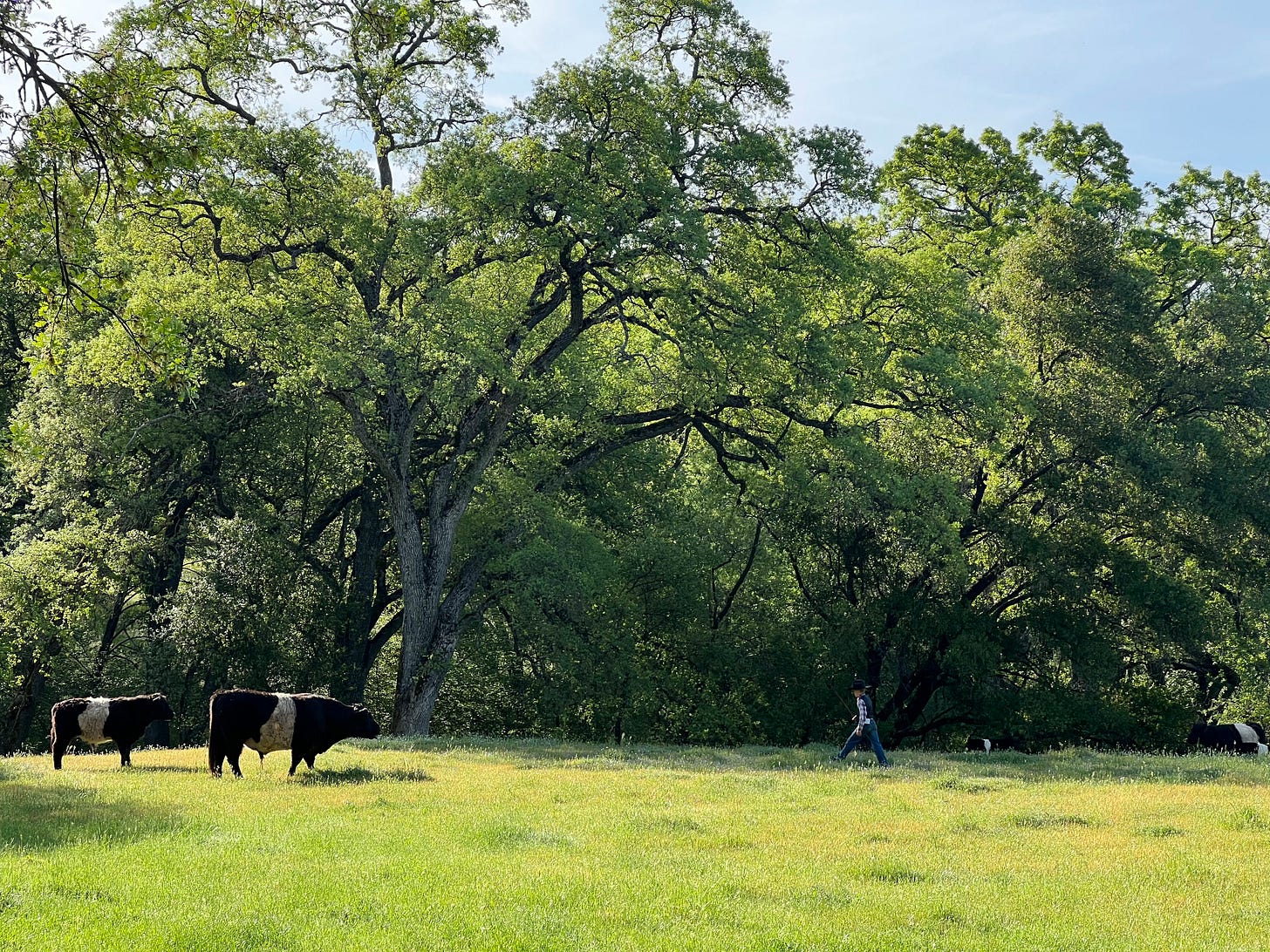
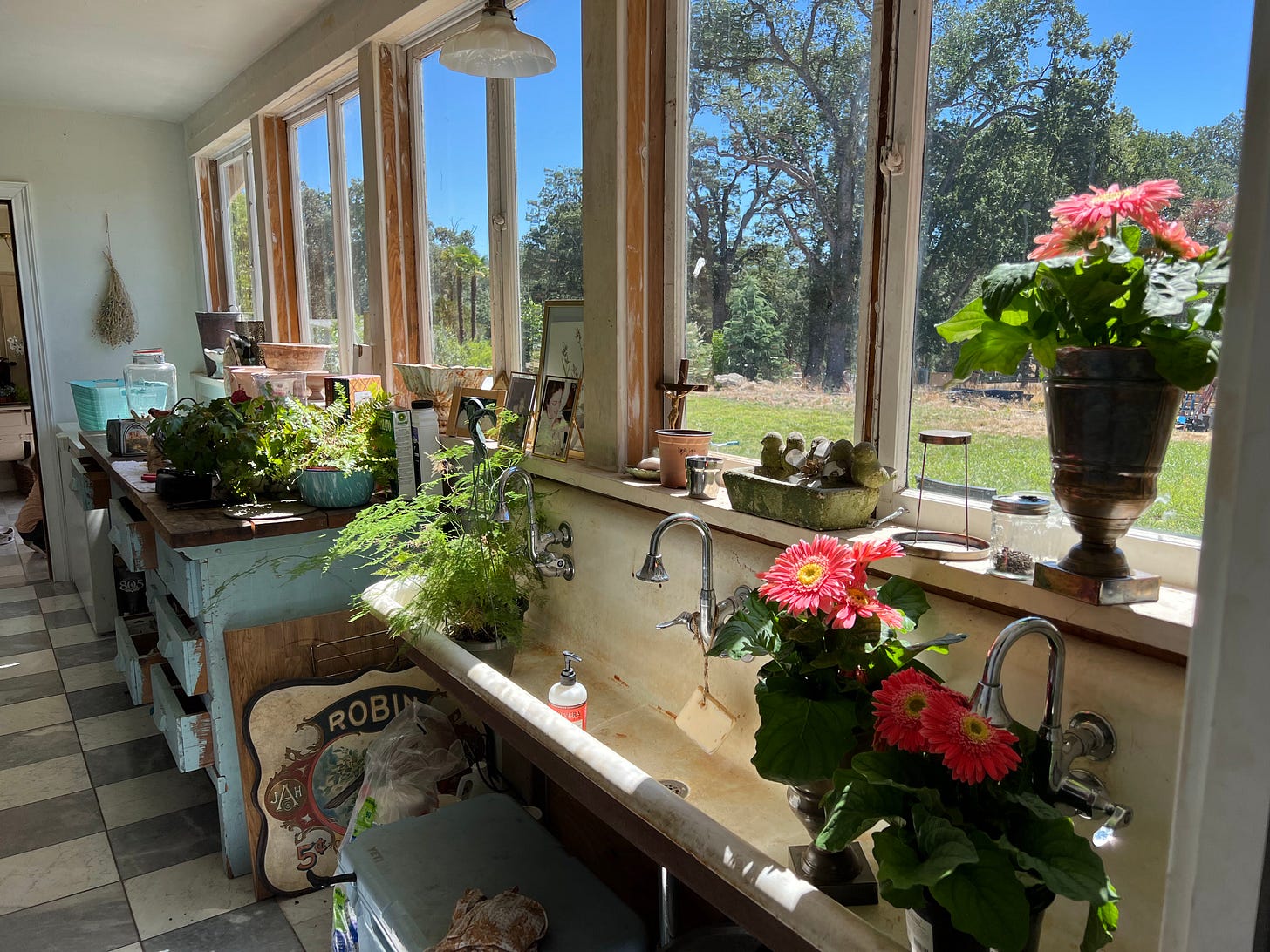
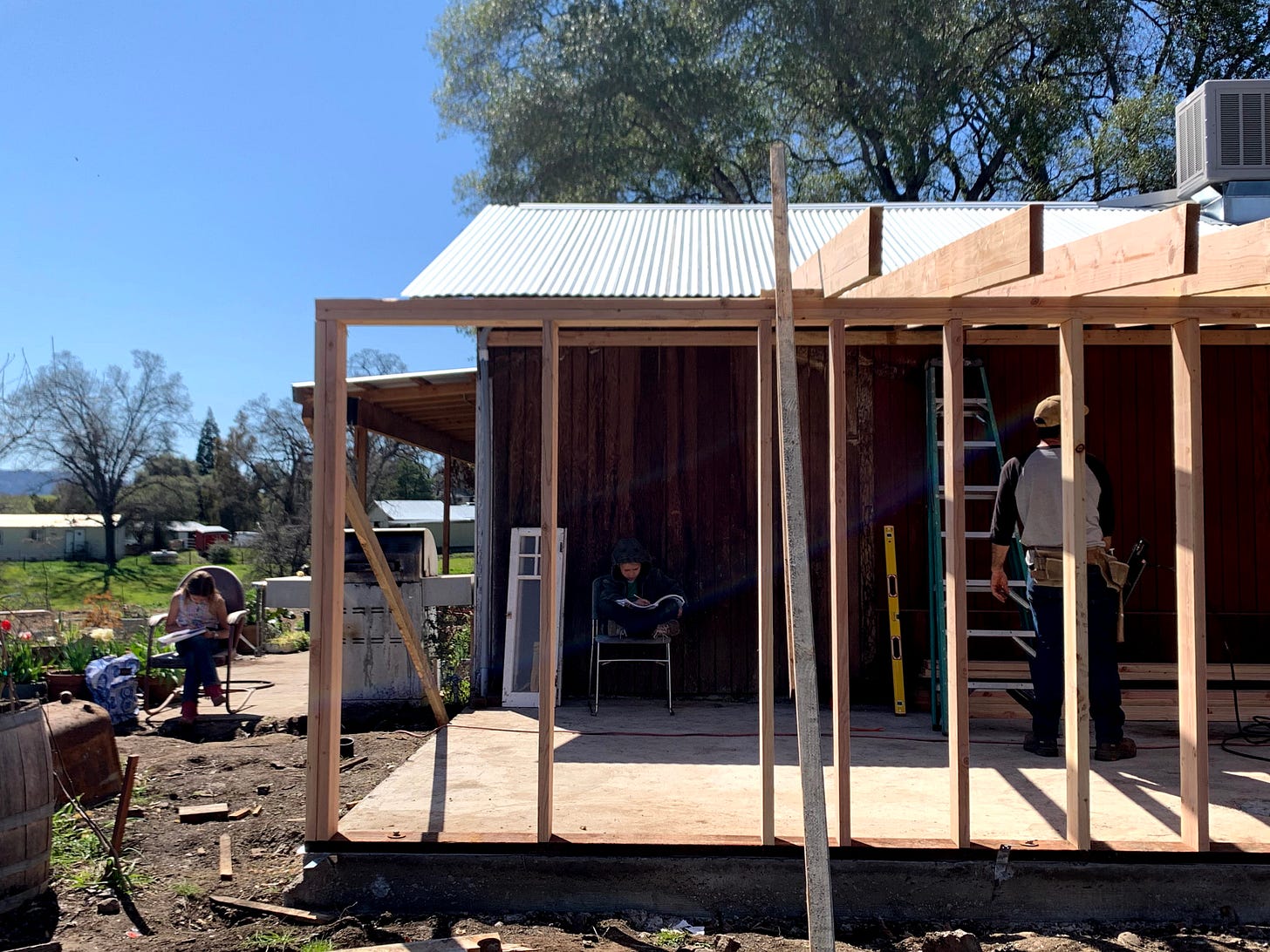
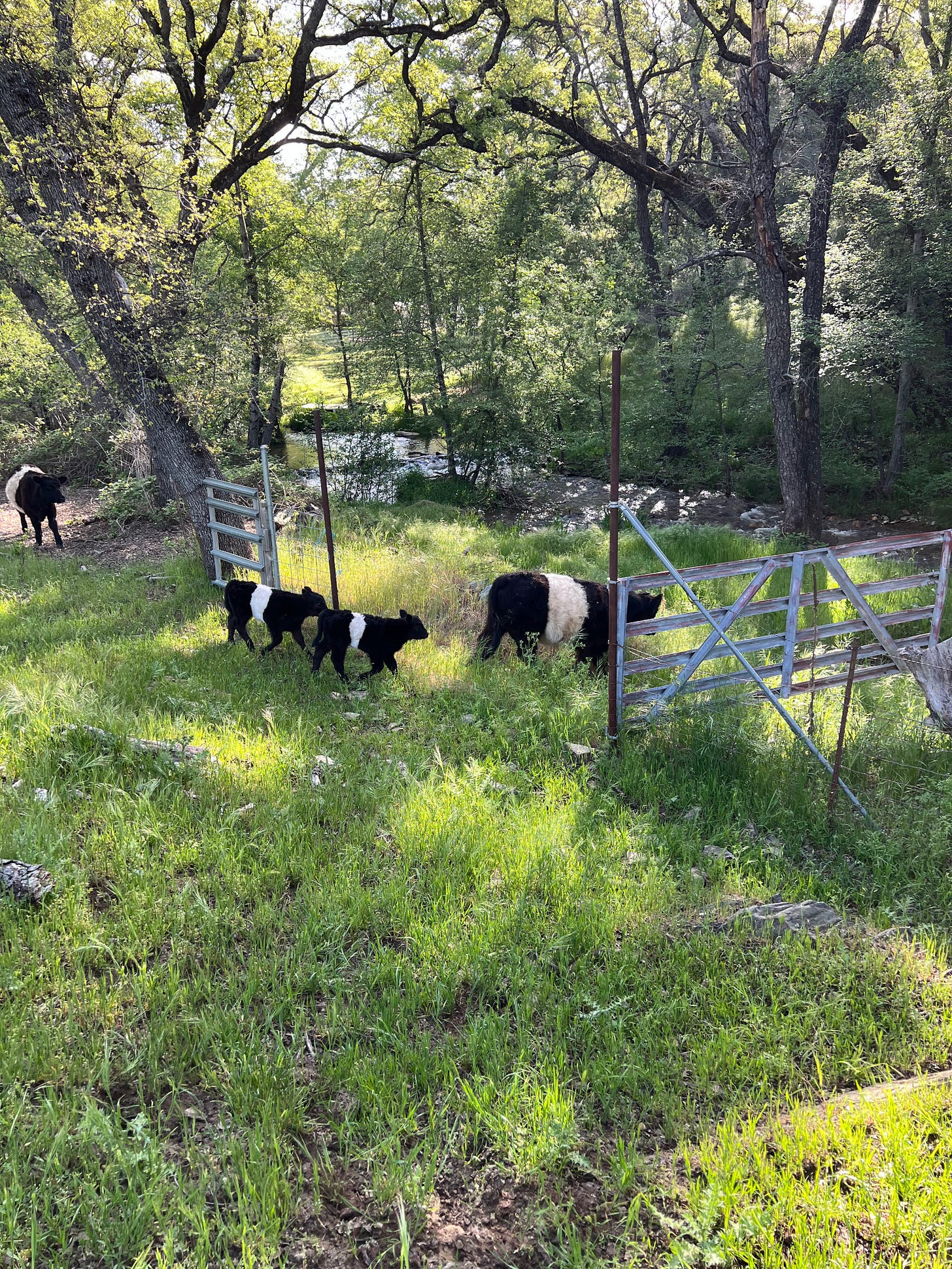
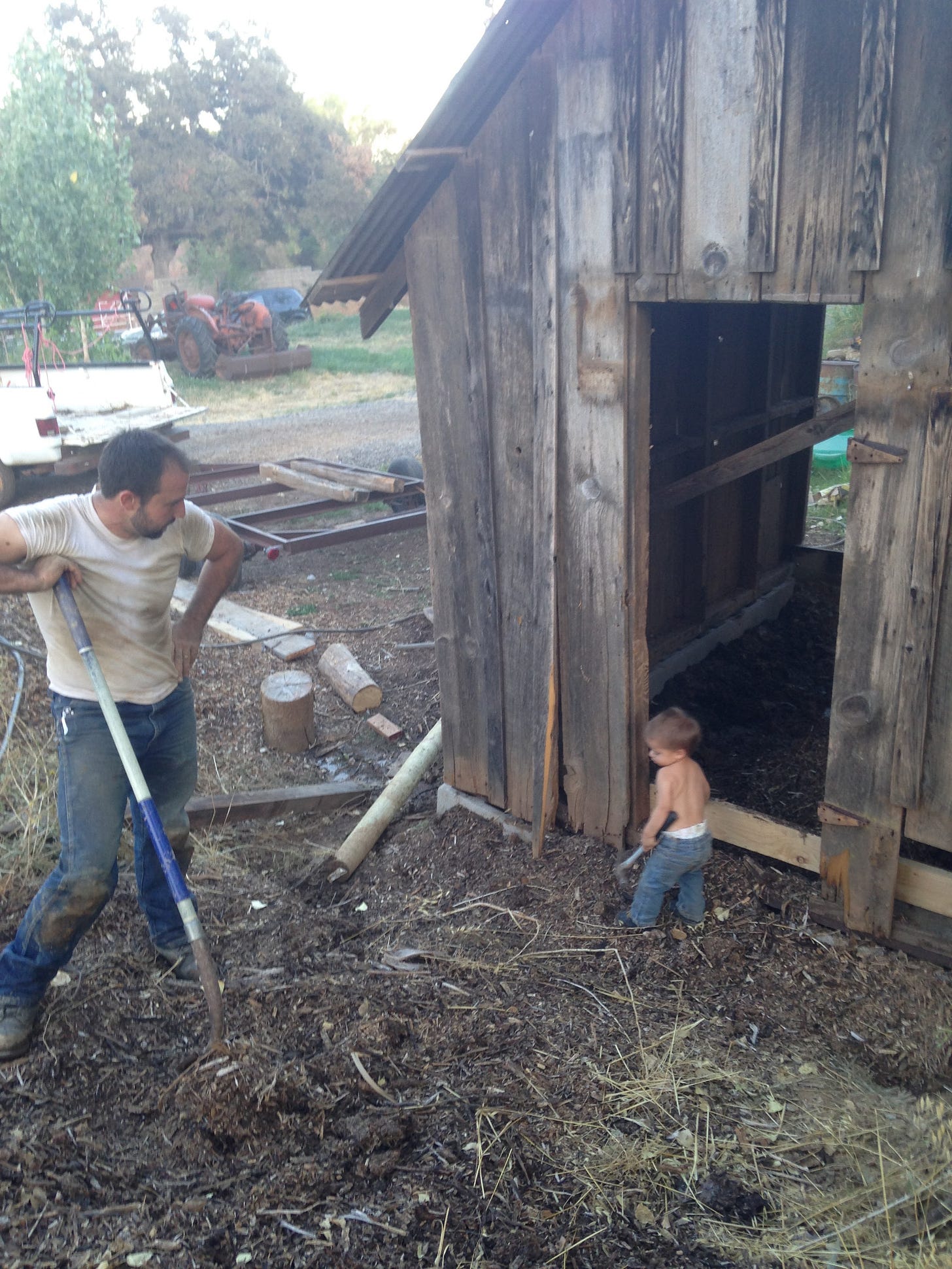
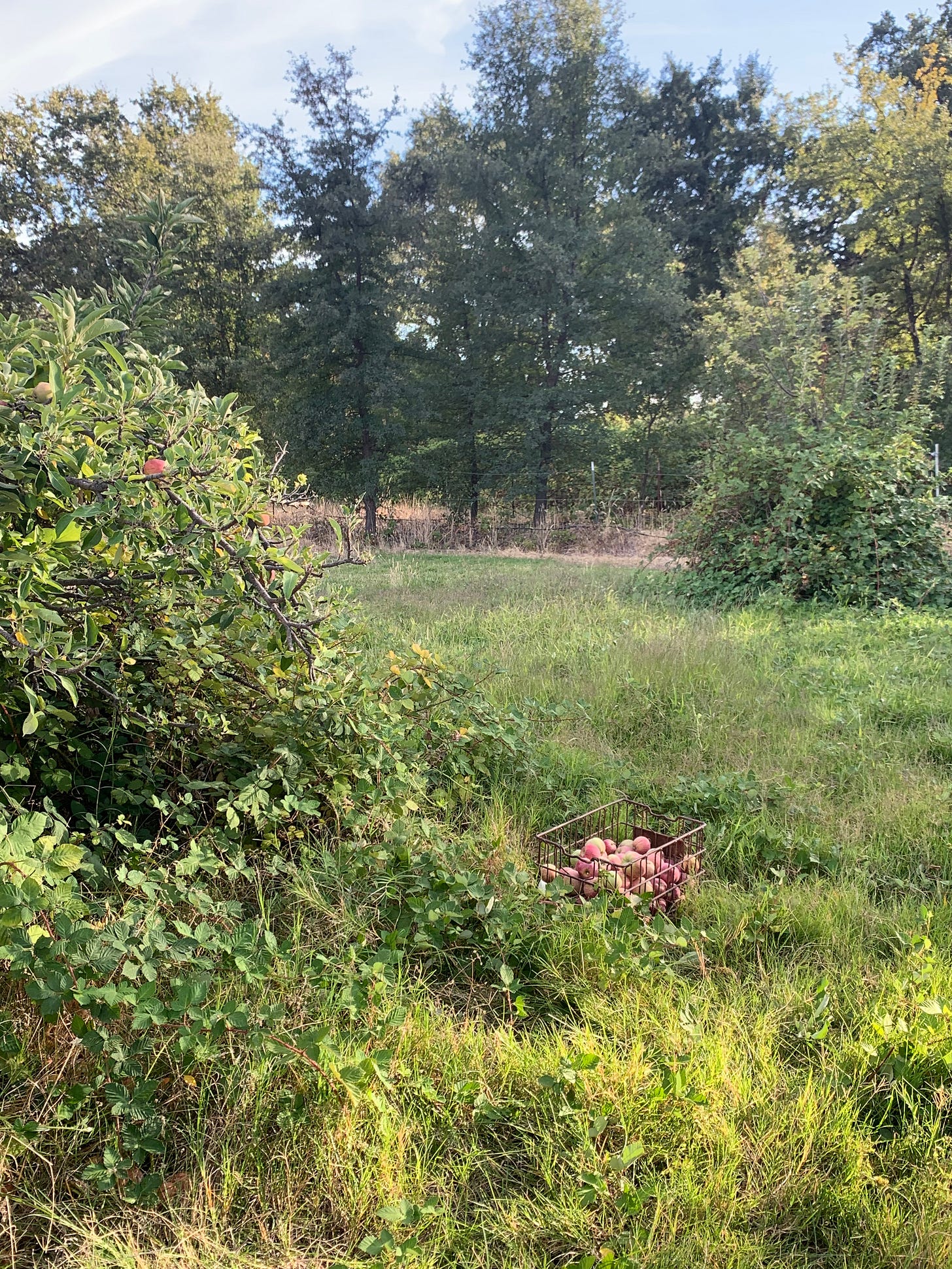
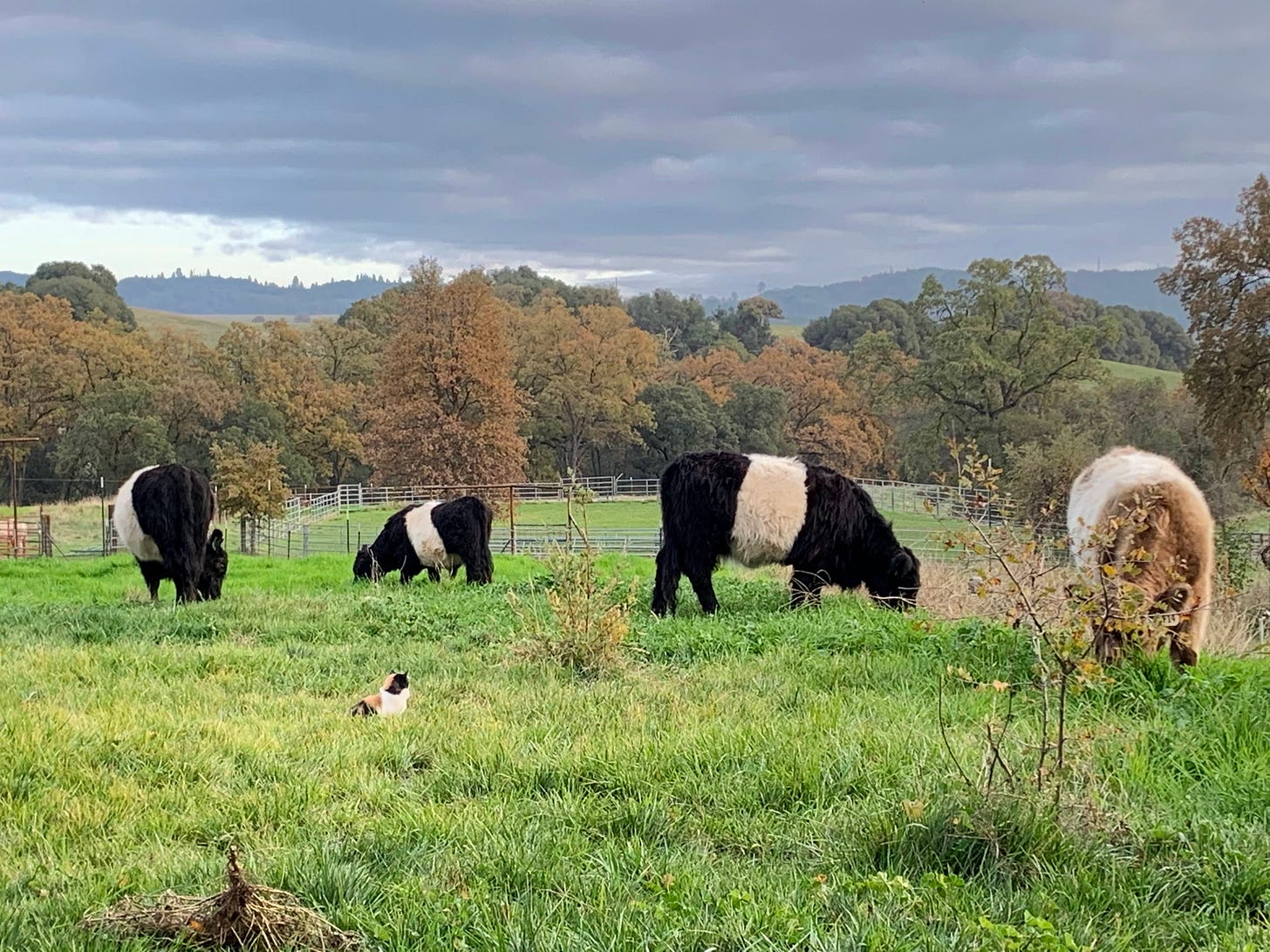
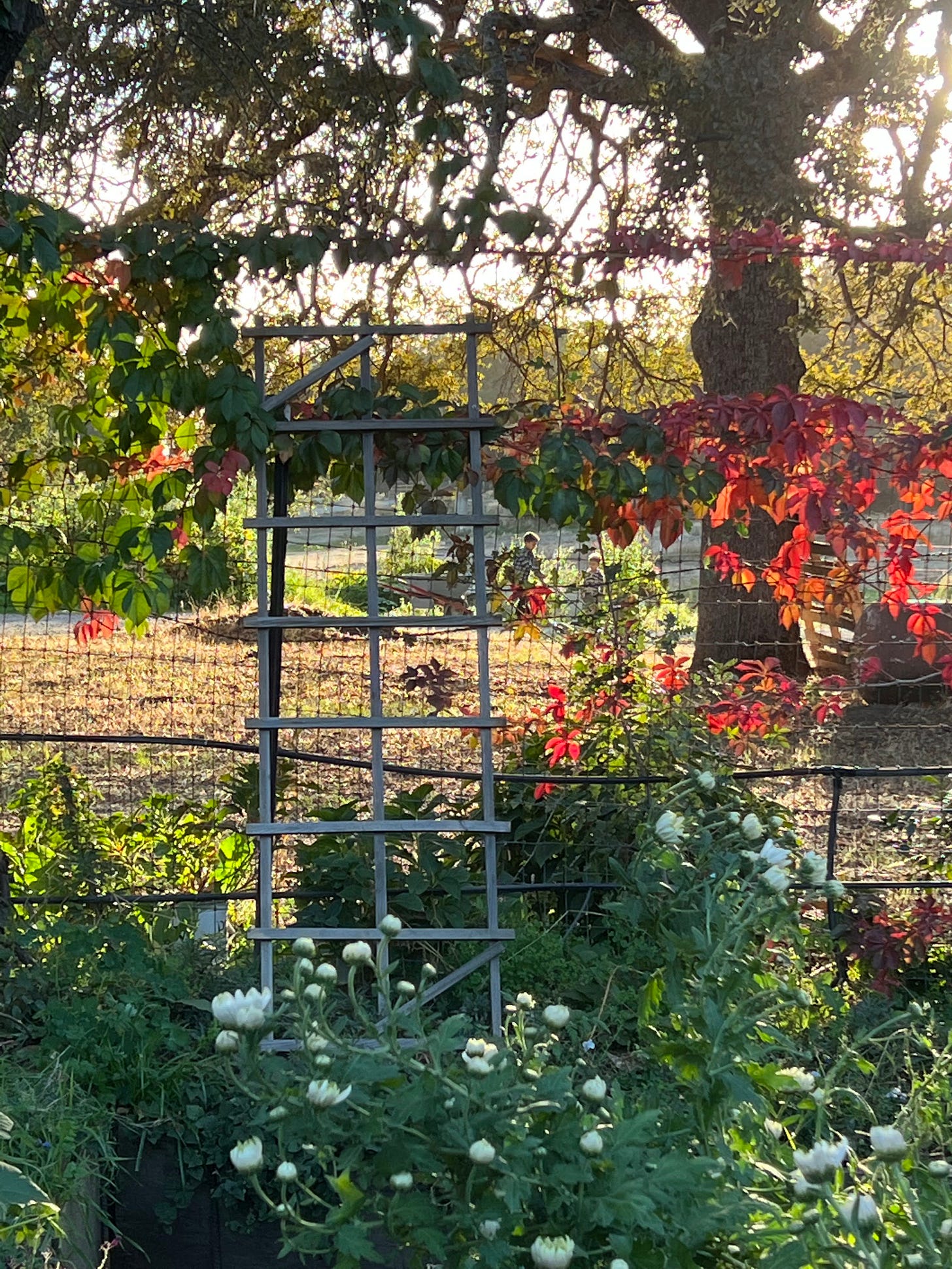
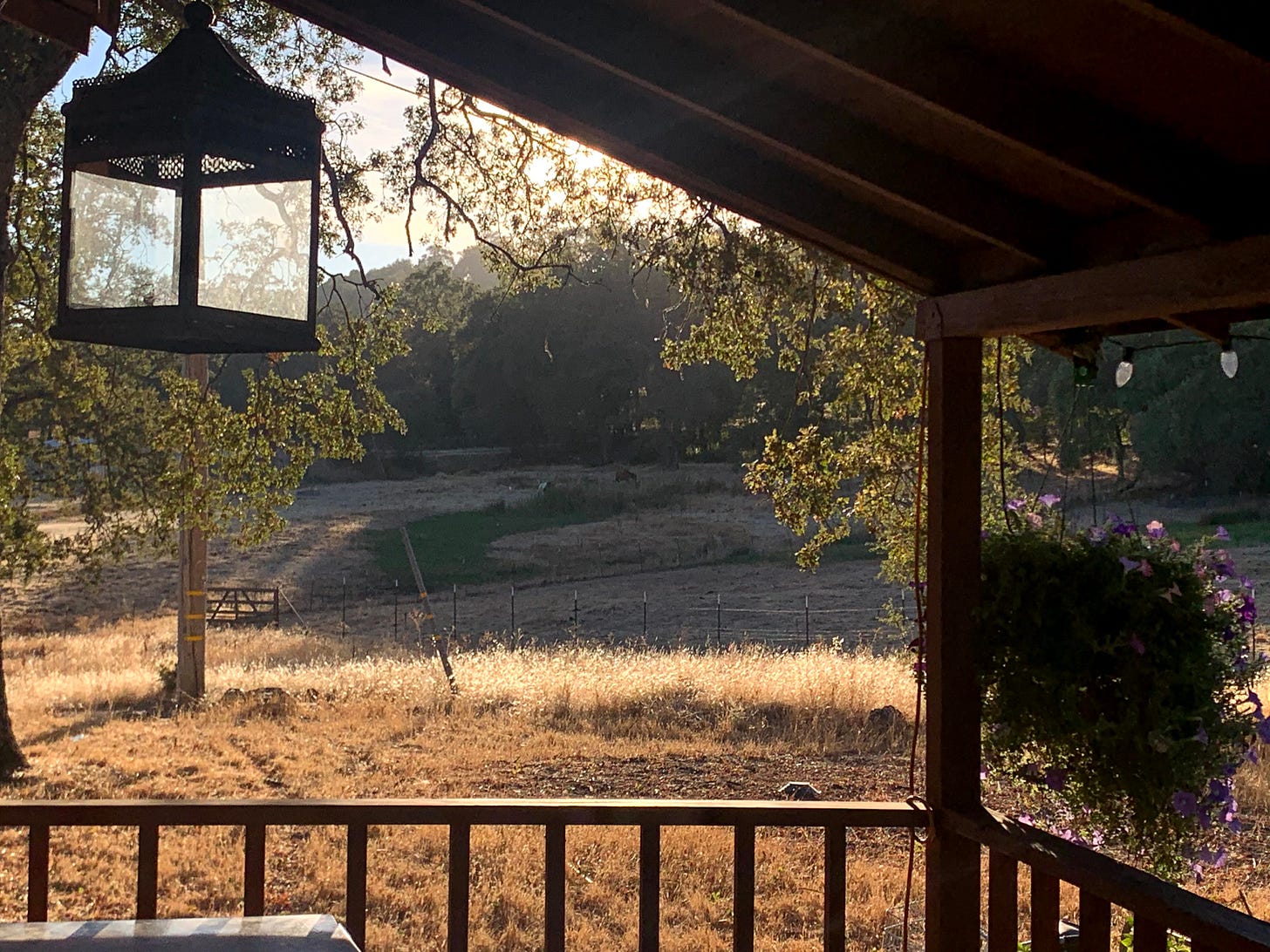
I agree with everything you say in this post, and have had many of the same experiences. My wife and I raised our 8 kids in Rural Missouri, homeschooled them, and I also grew up on a farm. But my health went bad, so after 5 years of waiting we came back to Ohio, where there work ethic served them well and they've had no trouble getting jobs. I drove a bus until a few months ago.
My point is this: as much as we avoid difficulty, (and having good habits and a good work ethic helps immeasurably,) we often the learn the most, from going through difficulty. These things must be so difficult that we'd never choose them voluntarily; and the qualities they teach aren't ever the same as the ones you'd get by merely choosing a good quality and deciding to have it. There's a quality of patience and thoughtfulness we can't learn any other way. And really, to work this must be involuntary.